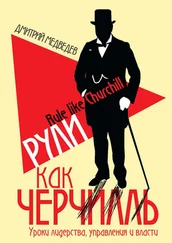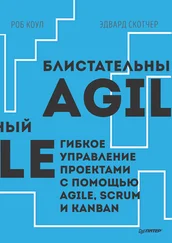Kruchten, Philippe. “Voyage in the Agile Memeplex” ACM Queue . August 16, 2007.
Lane, David et.al. Complexity Perspectives in Innovation and Social Change . Berlin: Springer, 2009.
Larman, Craig. Agile and Iterative Development . Boston: Addison-Wesley, 2004.
Larman, Craig and Bas Vodde. Scaling Lean & Agile Development . Boston: Addison-Wesley, 2009.
Leffingwell, Dean. Scaling Software Agility . Oxford Oxfordshire: Oxford University Press, 2007.
Le Page, Michael. “Evolution: A guide for the not-yet perplexed” New Scientist . 19 April 2008.
Levitt, Ted. Ted Levitt on Marketing . Boston: Harvard Business School Press, 2006.
Lewin, Roger. Complexity . Chicago: University of Chicago Press, 1999.
Lewin, Roger and Birute Regine. Weaving Complexity and Business . Mason: Texere, 2001.
Lissack, Michael R. “Complexity: the Science, its Vocabulary, and its Relation to Organizations” Emergence . Vol. 1, Issue 1, 1999.
Lundin, Stephen et.al. Fish! . New York: Hyperion, 2000.
Maguire, Steve. and Bill McKelvey. “Complexity and Management: Moving from Fad to Firm Foundations”. Emergence . Vol. 1, Issue 2, 1999.
Macleod, Mairi. “You are what you copy” New Scientist . 1 May 2010.
Manns, Lynn, Mary and Linda Rising. Fearless Change . Boston: Twayne Publishers, 2005.
Marick, Brian “Six years later: What the Agile Manifesto left out” .
Marion, Russ and Mary Uhl-Bien. “Paradigmatic Influence and Leadership: The Perspectives of Complexity Theory and Bureaucratic Theory” in Hazy, K., James et.al. Complex Systems Leadership Theory . Goodyear: ISCE Pub, 2007.
McConnell, Steve. Rapid Development . New York: McGraw-Hill, 1996.
McGregor, Douglas and Joel Cutcher-Gershenfeld. The Human Side of Enterprise . New York: McGraw-Hill, 2006.
McKelvey, Bill. “Complexity Theory in Organization Science: Seizing the Promise or Becoming a Fad?” Emergence . Volume 1 Issue 1, 1999.
Middleton, Peter and James Sutton. Lean Software Strategies . Portland: Productivity Press, 2005.
Miller, John H. and Scott E. Page. Complex Adaptive Systems . Princeton: Princeton University Press, 2007.
Minsky, Marvin. The Society of Mind . New York: Simon and Schuster, 1986.
Mintzberg, Henry. Managing . San Francisco: Ignatius Press, 2009.
Mitchell, Melanie. Complexity . City: Oxford U Pr, N Y, 2009.
Norberg, Johan. Financial Fiasco . Washington D.C.: Cato Institute, 2009.
Norman, Don. “Simplicity Is Highly Overrated.” . Jnd.org . 2007.
O’Donogue, James. “Look at the SIZE of those things!” NewScientist . 21 March 2009.
Pettit, Ross . The Agile Manager . June 29, 2008.
Phillips, Jeffrey. Make Us More Innovative . United States: iUniverse, Inc., 2008.
Pmi, Pmi. Guide to the Project Management Body of Knowledge . Drexel Hill: Project Management Institute, 2008.
Poppendieck, Mary. “Unjust Deserts” Better Software . July/August 2004.
Poppendieck, Mary et.al. Implementing Lean Software Development . Boston: Addison-Wesley, 2007.
Prigogine, I. and Isabelle Stengers. The End of Certainty . New York: Free Press, 1997.
Pulford, Kevin et.al. A Quantitative Approach to Software Management . San Francisco: Ignatius Press, 1996.
Pundir, Ashok K, et.al. “Towards a Complexity Framework for Managing Projects” E: CO . Vol. 9, Issue 4, 2007.
Quinn, R.E. & Spreitzer, “G.M. The road to empowerment: Seven questions every leader should consider.” Organizational Dynamics , 26-2, 1997
Reinertsen, Donald. Managing the Design Factory . New York: Free Press, 1997.
Reiss, Steven. Who Am I? The 16 Basic Desires That Motivate Our Actions and Define Our Personalities . City: Berkley Trade, 2002.
Reynolds, Craig (1987), “Flocks, herds and schools: A distributed behavioral model.”, SIGGRAPH ‘87: Proceedings of the 14th annual conference on Computer graphics and interactive techniques (Association for Computing Machinery): 25-34, doi:10.1145/37401.37406, ISBN 0-89791-227-6.
Richardson, K.A. “Managing Complex Organizations” E: CO Vol. 10 No. 22008.
Richardson, K.A. “Systems theory and complexity: Part 1” E: CO Vol. 6 No. 32004 (a).
Richardson, K.A. “Systems theory and complexity: Part 2” E: CO Vol. 6 No. 42004 (b).
Rico, F., David et.al. The Business Value of Agile Software Methods . New York: McGraw-Hill, 2009.
Rothman, Johanna and Esther Derby. Behind Closed Doors . Raleigh: Pragmatic Bookshelf, 2005.
Runco, Mark and Steven Pritzker. Encyclopedia of Creativity . Boston: Academic Press, 1999.
Satir, Virginia et.al. The Satir Model . Palo Alto: Science and Behavior Books, 1991.
Saviano, Roberto and Virginia Jewiss. Gomorrah: a Personal Journey into the Violent International Empire of Naples’ Organized Crime System . New York: Picador, 2008.
Schwaber, Ken. “Agile Processes and Self-Organization” . 2001.
Schwaber, Ken. Agile Project Management with Scrum . Redmond: Microsoft Press, 2004.
Schwaber, Ken and Mike Beedle. Agile Software Development with Scrum . Englewood Cliffs: Prentice Hall, 2002.
Sheedy, Tim. “People Management is Fundamental to the Success of Large Systems Integration Projects.” Forrester , June 11, 2008. .
Shore, James. “Why I Don’t Provide Agile Certification.” The Art of Agile , March 31, 2009. .
Sivers, Derek. “Shut up! Announcing your plans makes you less motivated to accomplish them” 16 June 2009.
Skyttner, L. General systems theory: Ideas and applications , River Edge, NJ: World Scientific. 2001.
Snowden, David. “Knowledge sharing across silos: Part II” Cognitive Edge 2010 (a).
Snowden, David. “Multi-ontology sense making: a new simplicity in decision making” Management Today . Yearbook 2005, Vol 20.
Snowden, David. “The origin of Cynefin (part 1)…(part 7)” Cognitive Edge 2010 (b).
Sokal, Alan and Jean Bricmont. Intellectual Impostures: Postmodern Philosophers’ Abuse of Science. Economist Books, 1998.
Solé, Ricard et.al. Signs of Life . New York: Basic Books, 2000.
Spagnuolo, Chris. “Discipline versus Motivation.” EdgeHopper . 9 October 2008.
Spanyi, Andrew. “Beyond Process Maturity to Process Competence.” BPTrends , June, 2004. .
Spolsky, Joel. “In Defense of Not-Invented-Here Syndrome.” Joel on Software , 14 Oct. 2001. .
Spolsky, Joel. “The Law of Leaky Abstractions.” Joel on Software , 11 Nov. 2002. .
Sprangers, Chris “Verkeer zonder regels is veiliger” . January 11, 2007 Intermediair.
Stacey, Ralph D. Strategic Management and Organisational Dynamics: The Challenge of Complexity, First Edition . Upper Saddle River: Prentice Hall, 2000 (b).
Stacey, Ralph D. et.al. Complexity and Management . New York: Routledge, 2000 (a).
Stack, Jack. The Great Game of Business . Oxford Oxfordshire: Oxford University Press, 1994.
Stallard, Michael L. Fired Up or Burned Out . Nashville: Thomas Nelson, 2007.
Starcevich, Matt M. “Coach, Mentor: Is there a difference.” . Center for Coaching & Mentoring . 2009. “The State of Agile Development Survey 2009” Version One , August, 2009. .
Stephenson, Karen. Quantum Theory of Trust . Harlow: Pearson Education Ltd, 2005.
Читать дальше
Конец ознакомительного отрывка
Купить книгу







![Павел Безручко - Практики регулярного менеджмента [Управление исполнением, управление командой] [litres]](/books/406568/pavel-bezruchko-praktiki-regulyarnogo-menedzhmenta-u-thumb.webp)




